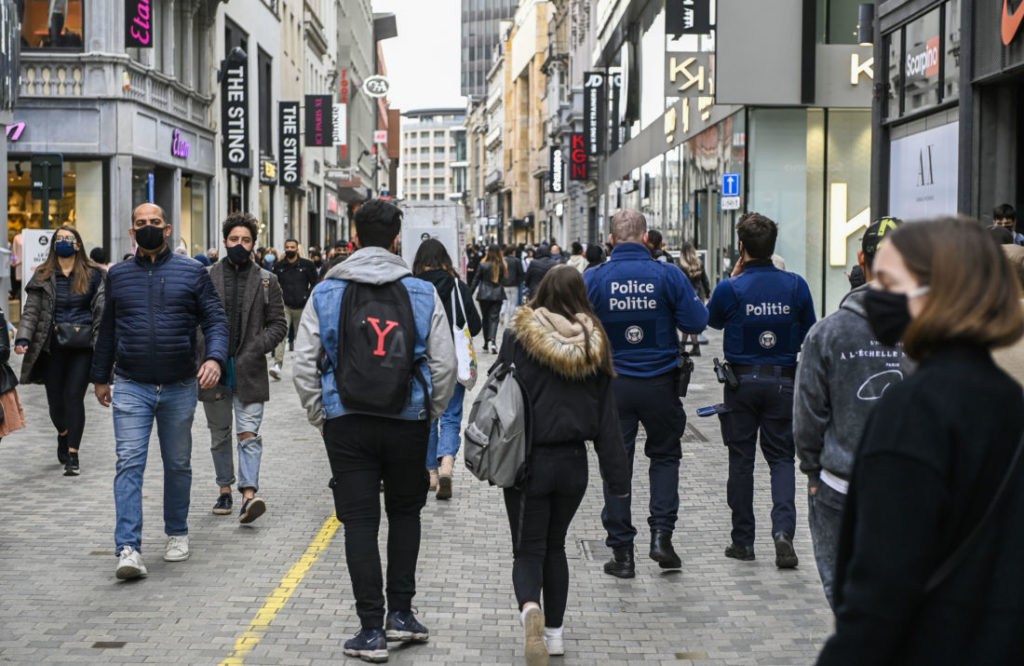Almost all coronavirus restrictions are being eased in Denmark, the United Kingdom and Ireland, including early closing hours, mandatory teleworking and their equivalents of the Covid Safe Ticket (CST).
Since Saturday morning, the Irish only have to wear a mask in shops and on public transport, VRT reports. In the United Kingdom, masks, telecommuting and showing a CST are no longer mandatory. In Denmark, too, there will be no more strict coronavirus measures beginning 1 February.
Why not Belgium?
Belgium seems to be moving in the opposite direction with the rollout of its new coronavirus barometer — which puts the country currently in Code Red. This is primarily down to the still very high numbers of infections and hospitalisations.
The United Kingdom and Ireland have already passed the peak of the fifth wave. In the UK, this was on 5 January (with 2,681.4 infections per million inhabitants); in Ireland on 9 January (with 4,766.7 infections per million inhabitants).
Meanwhile, infections continue to climb in Belgium. So too in Denmark, which has an even higher number of daily infections: 7,158.26 infections per million inhabitants compared to Belgium’s 4,381.26 on 25 January.
The difference could be partly explained by the fact that Denmark carries out a large number of tests.
Hospitalisations vary by nation
Hospitalisations are falling in the UK and Ireland, and rising in Belgium and Denmark. Still, Denmark has the largest number of coronavirus patients (per million inhabitants) in its hospitals.
Related News
- Belgium starts hearings on introducing vaccination obligation today
- Covid Safe Ticket of 220,000 Brussels residents could expire in March
- Austria ends lockdown for unvaccinated, measure deemed 'no longer useful'
Denmark also avoided a fourth wave last autumn and has consistently seen fewer hospitalisations throughout the entire pandemic.
Belgium also has a far number of Covid patients in intensive care compared to the other three countries.
Waiting for the peak
Steven Van Gucht stresses the need for caution until Belgium passes this peak. Given that Denmark has yet to reach its peak, Van Gucht believes that the decision to relax measures anyway is unwise.
“I always argue for a certain consistency,” he said. “In Ireland, a severe first lockdown closed everything; now they are throwing everything open. Those are very big jumps that I would not recommend.”
Van Gucht cited the strain that a sudden easing of restrictions puts on society: “It isn't only hospitals, but also GPs, schools and businesses. People are dropping out everywhere because the virus is circulating so strongly."
Too soon for Belgium
Van Gucht says that gradual relaxations are possible only once the pressure has subsided. While he doesn’t think Belgium will have to wait much longer, that time has not yet come.
“The prospect of easing is coming and it won't take long. Within a few weeks, we will gradually ease more and more,” he said. “But right now, we have yet to reach our peak. Let's use the corona barometer for what it is set up to do.”

